Hongzhi Xie
SS-CADA: A Semi-Supervised Cross-Anatomy Domain Adaptation for Coronary Artery Segmentation
May 06, 2021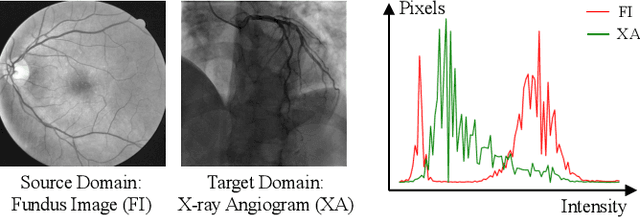
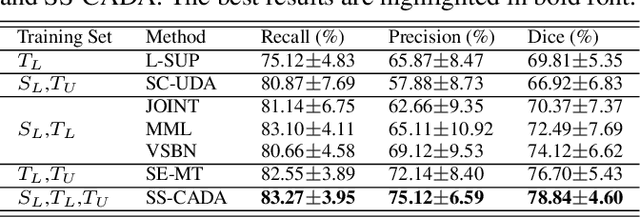

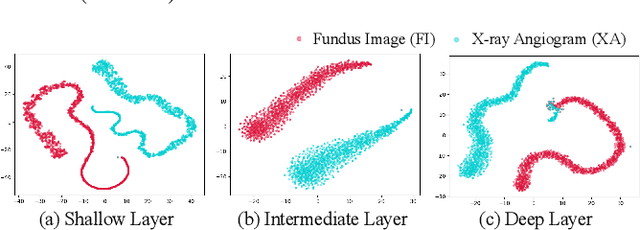
Abstract:The segmentation of coronary arteries by convolutional neural network is promising yet requires a large amount of labor-intensive manual annotations. Transferring knowledge from retinal vessels in widely-available public labeled fundus images (FIs) has a potential to reduce the annotation requirement for coronary artery segmentation in X-ray angiograms (XAs) due to their common tubular structures. However, it is challenged by the cross-anatomy domain shift due to the intrinsically different vesselness characteristics in different anatomical regions under even different imaging protocols. To solve this problem, we propose a Semi-Supervised Cross-Anatomy Domain Adaptation (SS-CADA) which requires only limited annotations for coronary arteries in XAs. With the supervision from a small number of labeled XAs and publicly available labeled FIs, we propose a vesselness-specific batch normalization (VSBN) to individually normalize feature maps for them considering their different cross-anatomic vesselness characteristics. In addition, to further facilitate the annotation efficiency, we employ a self-ensembling mean-teacher (SEMT) to exploit abundant unlabeled XAs by imposing a prediction consistency constraint. Extensive experiments show that our SS-CADA is able to solve the challenging cross-anatomy domain shift, achieving accurate segmentation for coronary arteries given only a small number of labeled XAs.
Weakly Supervised Vessel Segmentation in X-ray Angiograms by Self-Paced Learning from Noisy Labels with Suggestive Annotation
May 27, 2020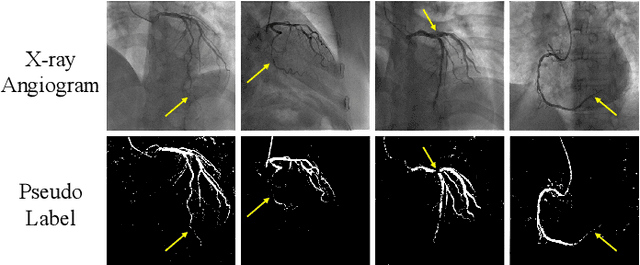

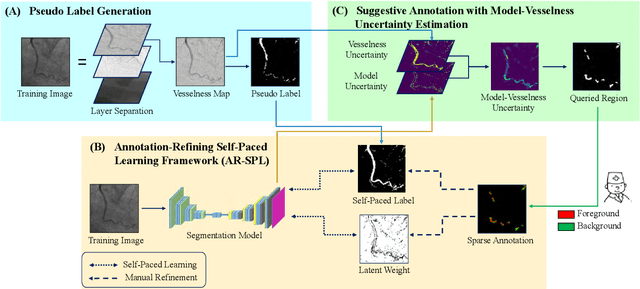
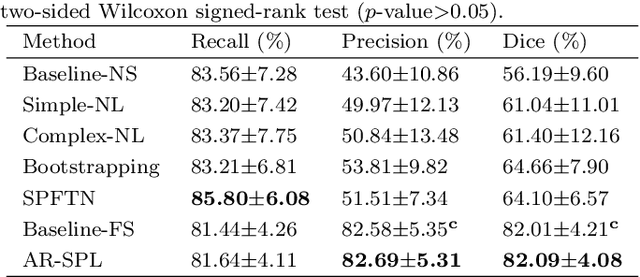
Abstract:The segmentation of coronary arteries in X-ray angiograms by convolutional neural networks (CNNs) is promising yet limited by the requirement of precisely annotating all pixels in a large number of training images, which is extremely labor-intensive especially for complex coronary trees. To alleviate the burden on the annotator, we propose a novel weakly supervised training framework that learns from noisy pseudo labels generated from automatic vessel enhancement, rather than accurate labels obtained by fully manual annotation. A typical self-paced learning scheme is used to make the training process robust against label noise while challenged by the systematic biases in pseudo labels, thus leading to the decreased performance of CNNs at test time. To solve this problem, we propose an annotation-refining self-paced learning framework (AR-SPL) to correct the potential errors using suggestive annotation. An elaborate model-vesselness uncertainty estimation is also proposed to enable the minimal annotation cost for suggestive annotation, based on not only the CNNs in training but also the geometric features of coronary arteries derived directly from raw data. Experiments show that our proposed framework achieves 1) comparable accuracy to fully supervised learning, which also significantly outperforms other weakly supervised learning frameworks; 2) largely reduced annotation cost, i.e., 75.18% of annotation time is saved, and only 3.46% of image regions are required to be annotated; and 3) an efficient intervention process, leading to superior performance with even fewer manual interactions.
 Add to Chrome
Add to Chrome Add to Firefox
Add to Firefox Add to Edge
Add to Edge